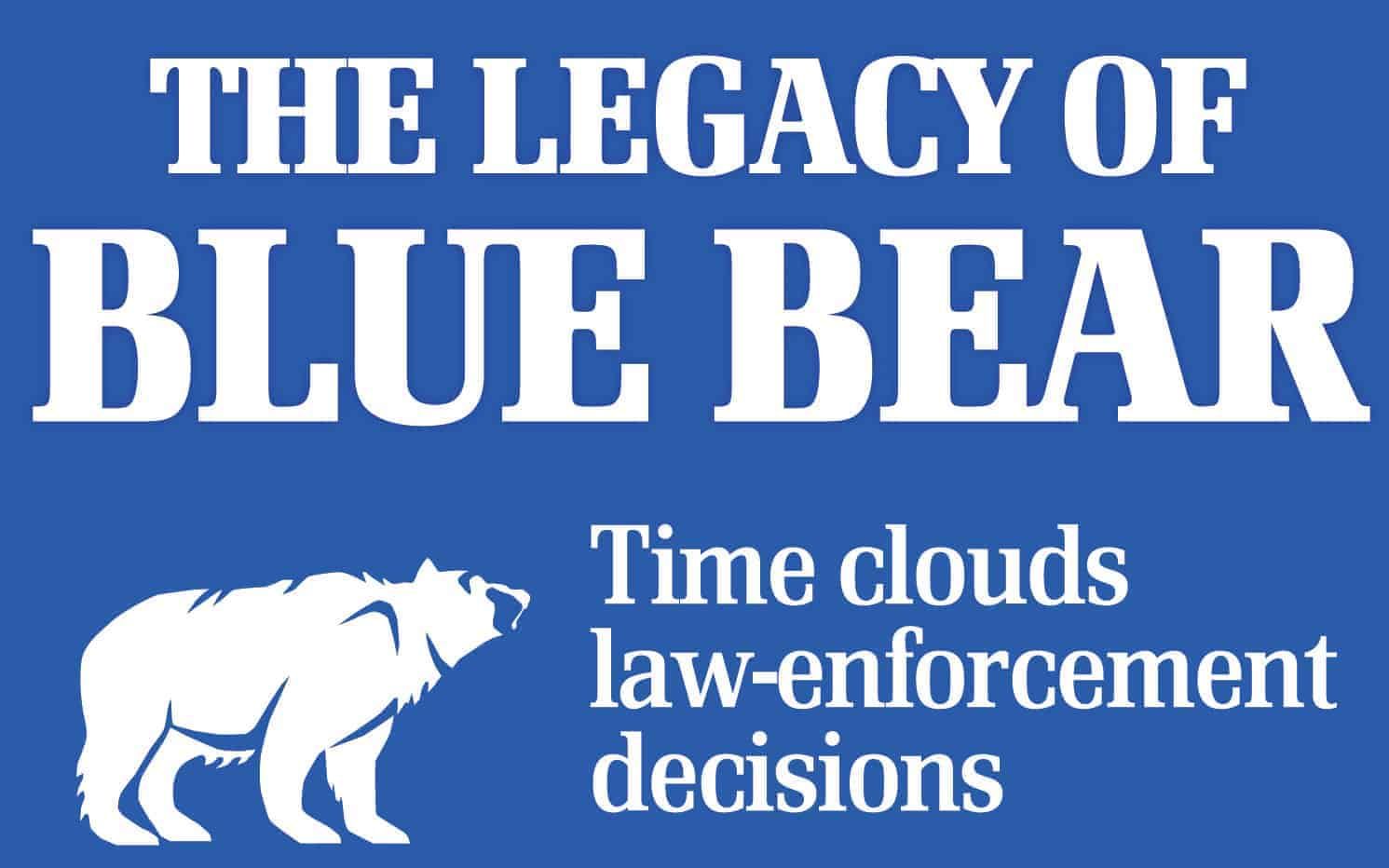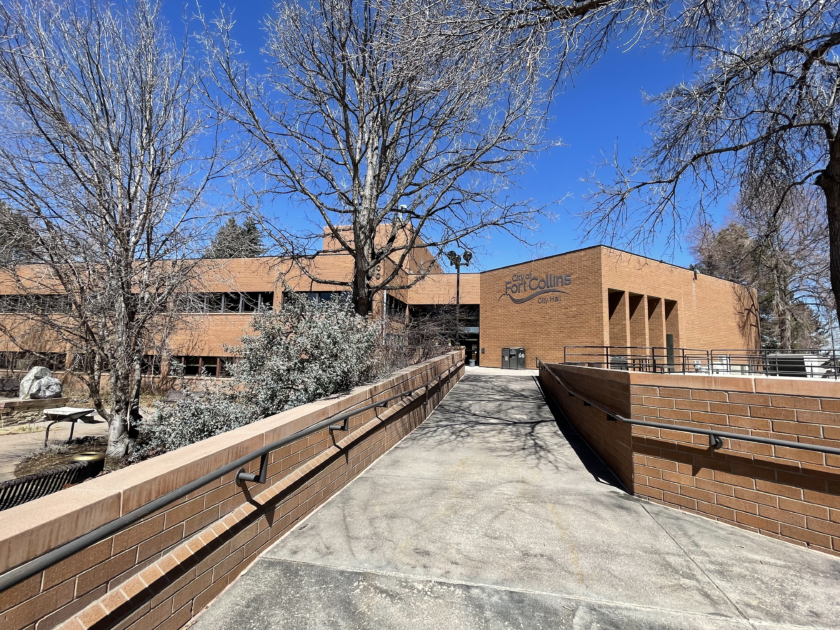Blue Bear: Time clouds law-enforcement decisions
The Legacy of Blue Bear

WINDSOR — Even though Blue Bear Funding LLC operated entirely out of an office in Windsor, the only people ever convicted of a crime connected to Blue Bear’s collapse were two people in New Hampshire, and another local man caught on the fringes.
Despite hundreds of claimants, a slew of civil lawsuits and a loss of about $20 million, no one directly involved in the creation, operation and collapse of Blue Bear was ever charged with a crime by authorities, and because of the statute of limitations, it’s unlikely that anyone ever will.
So who did go to jail?
Let’s begin with the people who were tangentially involved with Blue Bear who faced prison time.
SPONSORED CONTENT
Two years after Blue Bear went bankrupt, Colorado charged Fort Collins businessman Gene Little with 43 counts of securities fraud and theft for collecting about $11 million from investors for his own factoring company. Most of the new capital brought into that fund was forwarded to more senior investors, and very little of it was actually put toward investment.
Those funds were used to buy factoring accounts managed by Nationwide Cash Flow Specialists, a company operated by Blue Bear architect David Karst.
Little was later convicted on 35 counts in 2008, convictions only indirectly related to Blue Bear.
Colin Lindsey was the owner of Noble Trust Co., a New Hampshire financial firm that sold an “alternative income” investment that directly invested in Sierra Factoring, one of the largest factoring companies that made up Blue Bear.
When Sierra defaulted on its loans in 2006, Lindsey moved $780,000 from new customers to pay off the existing accounts and started a scheme in Florida to defraud health insurance companies by selling high-net worth policies to people who wouldn’t normally qualify and funneling them through a trust he co-owned.
In October 2009, he and Noble Trust chief operating officer Lisa Elliott pled guilty to various counts of fraud.
Local, state and feds take a look
A slew of different regulators and law enforcement agencies took a look at the case, according to previous reporting at what was then the Northern Colorado Business Report (now BizWest) and from documents obtained by BizWest.
According to an April 2006 report, the Colorado Attorney General’s Office was investigating both Blue Bear and Darin DeVoe, an alleged co-architect of Blue Bear who has still eluded law enforcement to this day.
The FBI also sent a letter to Blue Bear shareholders in August 2006 saying it was starting an investigation into the company, a year after Blue Bear declared bankruptcy. It dropped the case in July 2009 and referred it to local prosecution, according to another letter sent to victims. The letter doesn’t say whether the case was sent to a county’s district attorney, the Colorado Securities Commission or the Colorado Attorney General’s office.
But it’s not clear which group had the final say on pressing charges against anyone connected to Blue Bear, and why that group never pushed a criminal case.
In October 2007, a Weld County grand jury indicted DeVoe. Ken Buck, then the Weld County District Attorney and now a U.S. Representative for Colorado’s eastern plains, told BizWest at the time that pursuing DeVoe was “the most manageable case” for the county when asked about DeVoe’s connection to Blue Bear. While the county had a program at the time that used donations from local banks to fund white-collar crime investigations, it seemed the office lacked the resources to take on the sprawling complexity of what Blue Bear had become.
“(The DeVoe case) is one of those cases that should be done by the federal government or the (Colorado) attorney general’s office,” he said then.
Meandering investigations
Aside from Weld County’s indictment of Darin DeVoe, BizWest could not identify anyone who faced criminal investigation involved in the operation of Blue Bear or the factoring companies.
It’s unclear why none of the various law enforcement or regulatory groups that looked at Blue Bear decided against filing charges. The answer, it seems, may have been lost to time.
Many of the people who were in investigatory roles during Blue Bear’s downfall declined to comment, saying they don’t remember specific details about the case. This includes John Suthers, the former Colorado Attorney General at the time and now mayor of Colorado Springs, and Richard Powers, then the FBI Denver Bureau’s special agent in charge. Troy Eid, the U.S. Attorney for Colorado from 2006 to 2009, said all federal investigations are confidential unless announced. He declined to comment.
Gerald Rome, a deputy state securities commissioner in charge of enforcement at the time of Blue Bear’s downfall, said the office was aware of David Karst, but couldn’t comment further about any specific investigations due to confidentiality.
Speaking hypothetically, Rome said the Colorado Securities Commission refers targets for investigation to law enforcement only if there’s a good -faith belief that the case would hold up in criminal court.
Specifically, a securities fraud case generally needs to show that a defendant was lying or stealing from clients, or was involved in some level of self-enrichment by committing fraud.
“In a lot of these cases, the bad actors are paying themselves a salary, like $100,000 a year or something,” Rome said. “For a criminal case, you really have to show these self-dealings.”
William Leone, the U.S. Attorney for Colorado from 2004 to 2006, and Ted Faul, a retired FBI agent living in Windsor and a known agent on the case, did not respond to BizWest’s queries.
Buck was not made available for an interview even after repeated attempts.
Has the window passed?
In Colorado, almost every felony outside of murder, treason and sexual assault against a child has a three-year window for prosecution under the state’s statute of limitations. Because Blue Bear started operations in 2003 and the state statute of limitations starts as soon as a felony is committed, it’s possible the last opportunity to charge anyone with theft or securities fraud ended in the late 2000’s to the earlier half of this decade.
However, there is no statute of limitations in Colorado for any type of forgery.
The federal statute of limitations for most crimes is five years.
“A product of the time” and fighting Ponzis today
Leo Weiss, a former trial lawyer for the U.S. Bankruptcy Trustee in Denver and one of the attorneys involved in Blue Bear’s bankruptcy, told BizWest that investment frauds were easier to run in the years before the 2008 financial crisis because of the economy’s laissez-faire attitude toward investment vehicle structures.
“Pre-2008, a lot of things were rather more loosely regulated, and everyone thought the economy was just going to go dynamite and lots of dubious practices were done,” he said. “Well, 2008 hit all of a sudden, regulators went ‘oops’, and the noose got tightened on a lot of practices.”
Weiss couldn’t comment as to why Blue Bear principals were not charged by federal authorities, but he did say the U.S. Attorney and Colorado Attorney General were aware of Karst.
Fred Joseph, the former Colorado Securities Commissioner at the time, disagreed with Weiss’ take. He said investigating Ponzi schemes are inherently more difficult than other types of fraud because investors always make some money in the early periods of the scam and are adverse toward government intervention ruining a profitable investment. Often times, regulators won’t even know about some schemes until after it falls apart.
That pattern has fit Ponzi schemes before, and despite history’s lessons from schemes as local as Northern Colorado to as large as Bernie Madoff’s, Joseph believes these frauds will continue to form, fall apart and ruin financial futures.
“It’s the darndest thing; it just keeps happening,” he said. “It’s probably happening as we’re speaking right now.”
WINDSOR — Even though Blue Bear Funding LLC operated entirely out of an office in Windsor, the only people ever convicted of a crime connected to Blue Bear’s collapse were two people in New Hampshire, and another local man caught on the fringes.
Despite hundreds of claimants, a slew of civil lawsuits and a loss of about $20 million, no one directly involved in the creation, operation and collapse of Blue Bear was ever charged with a crime by authorities, and because of the statute of limitations, it’s unlikely that anyone ever will.
So who did…
THIS ARTICLE IS FOR SUBSCRIBERS ONLY
Continue reading for less than $3 per week!
Get a month of award-winning local business news, trends and insights
Access award-winning content today!




